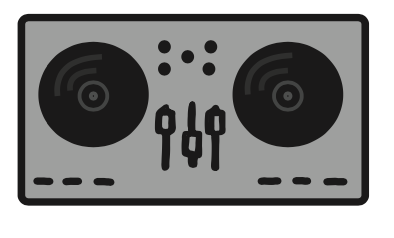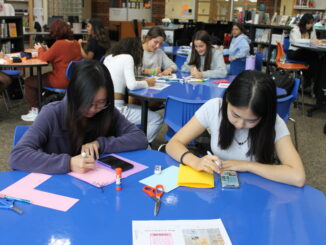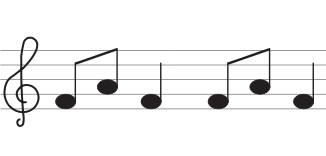
writing: the editorial board
design: Hiya Patel
Beyoncé, Lindsay Lohan, and Bella Hadid are just a few female faces that engross pop culture and the entertainment industry. Their stardom on TV and in magazines remains an impressive feat. But as women in a society defined by sexist ideals and male-manufactured gender roles, it’s necessary to acknowledge the double standards established by men in power of show biz.
Just one of the many sectors in which women are affected by these double standards is the music industry. A big part of this is in their performances; we can count on our fingers the number of times a recent male artist has put on a good show.
Take the Super Bowl for example. Maroon 5’s Adam Levine decided to take his shirt off when he realized no one wanted to listen to him. The Weekend’s million-dollar idea was to run through a maze with a selfie stick. And don’t even get us started on Coldplay.
On the other hand, female Super Bowl performances created shifts in pop culture. Lady gaga flew through the sky while delivering her vocals. Katy Perry rode a giant golden tiger. Beyoncé’s was self-explanatory.
Female artists are held to a much higher standard and constantly forced to reinvent themselves, their brands, styles, and appearances. Taylor Swift has gone through at least seven hair changes since her debut album, while Ed Sheeran still looks like his same ugly self.
The worst part is that these issues and other women’s rights have had a lack of progression within the entertainment industry. The 2017 Me Too Movement tried to address sexism and harassment in the workplace, but the efforts failed to create an institutional impact for victims.
Movie producer Harvey Weinstein was accused of harassing actresses and female film employees while also being honored with multiple film awards, according to NPR. It wasn’t until years later that he was finally brought to justice. However, his long-term reign of terror over female employees shows the lack of power in female voices.
Moreover, workplace discrimination extends to female pay in which critically acclaimed actresses such as Natalie Portman and Jennifer Lawrence were paid significantly less than their male costars, according to NPR.
In a broader sense, we question what these conflicts say about how our society treats women in the workplace: if females in powerful Hollywood positions encounter consistent harassment and sexism, then what level of abuse is the average female worker facing?
Women are expected to compete exceptionally better than their male counterparts to succeed while also confronting pushback in a gendered society. While movements like Me Too have pushed for change, we’ve yet to see conclusive evidence of a safer environment for female talent.
The issue isn’t that people aren’t fighting for change, but that their attempts at change aren’t valued. Other marginalized communities are facing the same problems when fighting for social justice. Unless everyone listens to the experiences and perspectives of disenfranchised groups, society can’t progress forward—further continuing the cycle of oppression and terrible super bowl performances.


